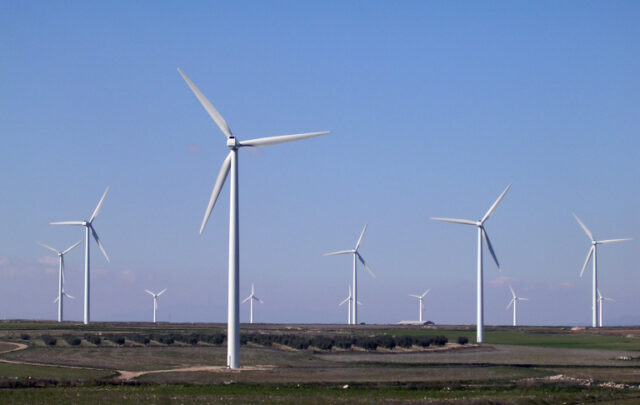1. Gasoline
The situation worsened last week with average US retail gasoline prices rising to $3.18 on Saturday, up 11 cents in the last two weeks.While Wednesday’s weekly gasoline stocks report showed that inventories increased for the second straight week, this time by 1.7 million barrels, the report also shows that 1.2 million barrels of the increase was on the West Coast where only 15 percent of US gasoline stocks are located. When the remaining 500,000 barrels are spread across the rest of the US, the increase was minimal for a country that consumes over 9 million barrels of gasoline a day.
Of greater concern is that the EIA’s no longer published “minimum operating level” turns out to be 185 million barrels, according to a 2004 Congressional Research Service report. The minimum operating level consists of gasoline still at the refinery, in transit via pipelines, ships or barges, or simply not available for immediate delivery to local gas stations. If one considers only the US east of the west coast, the minimum operating level for this area is probably somewhere around 160 million barrels. With current inventories to the east of the west coast at 166 million barrels, useable reserves for most of the country appear to be very tight.
Last week’s petroleum status report showed that US refineries were still operating below 90 percent of capacity rather that at the 95 percent or above that was common at this time of year before the hurricanes. Despite the lower utilization, improvements to refineries have resulted in increased US gasoline production which averaged 8.81 million b/d during April.
Reports of further refinery outages during the week, however, suggest that the US will have to maintain imports on the order of the 1.5 million b/d that was achieved the week before, if we are to avoid shortages later this summer. High gasoline prices on the west coast are still attracting gasoline shipments from South Korea, Taiwan and Singapore, but, the now restored, partial shutdown of ExxonMobil’s 300,000 b/d refinery in Singapore suggests that shipments to the US will be lower in May than in April.
Prospects for gasoline imports to the US’s east coast may not be good either. Reuters reports that the number of transatlantic gasoline cargos will fall by about a quarter this month. Not only is the gasoline situation in Europe becoming tight, but the US must also compete with Middle East and West Africa for gasoline shipments.
Developments during the past week continue to indicate that the US will see still higher gasoline prices and possibly shortages in the weeks ahead.
2. Impact of increasing prices
A consumer survey taken last week shows that 40 percent of those surveyed say they are shopping less, 30 percent say they are eating out less, 25 percent say they are spending less on clothing and 20 percent say they are delaying major purchases. Wal-Mart had its worst sales on record in April and forecast essentially flat sales at stores open at least a year in May. Overall same store sales in April were among the weakest on record as other major retailers including Target, Gap, Federated Department Stores, and J.C. Penney
Few American drivers have reached the point of cutting back. Weekly gasoline demand in April increased as much as 1.9 percent over the same period in 2006 even as the average national price of a gallon of gasoline grew from $2.71 to $2.97 by the end of the month. Only during early May, when prices jumped to over $3 a gallon, did demand for gasoline abate slightly.
Higher gas prices don’t appear to have had much effect on consumers’ car-buying behavior, according to Autodata Corp. Sales of lights trucks and SUVs declined 3 percent in April, less than the 12 percent slump in car sales. Light trucks and SUVs continue to make up the majority of vehicle sales in the US, or about 53 percent. There has been a gradual movement from larger to smaller SUVs, however, the total SUV share of the market remains largely intact.
3. Venezuela
The IEA reported that Venezuelan oil production dropped by 40,000 b/d in April to 2.35 million. The transfer of the Orinoco heavy crude projects to government control has increased the uncertainty about the future of Venezuelan production. Last month, Orinoco heavy crude oil enhancing projects supplied only 455,000 bpd -compared to their 630,000 bpd capacity- because of both "nationalization" and compliance with the OPEC production.
Venezuela’s central bank reported that revenues from crude exports by the state oil company fell 10 percent in the first three months of this year and exports from privately run oil projects dropped 24.4 percent.
Meanwhile, Venezuela’s threats to "nationalize" 18 oil rigs currently operated by foreign companies came as a shock to the oil services industry at a time these services are in high demand. Venezuela, announced that it wants to establish a Latin American oil and gas drilling corporation so that it will no longer have to rely on North America.
The rhetoric over the Orinoco negotiations stepped up a notch last week with the hard-line Deputy Energy Minister saying that oil companies that will not accept the Venezuela’s terms should leave the country.
4. Canada
The public debate over Canadian energy policy took a dramatic turn earlier this month. The Tory chair of a Parliamentary committee taking testimony on the implications of the proposed Security and Prosperity Partnership abruptly adjourned the meeting and stormed from the room followed by other Tory MPs when they heard some dismaying testimony. The “partnership” which refers to North American "energy security" as a priority, commits Canada to maintaining energy exports to the US, in the absence of a national plan or strategic reserve to protect its own security of supply.
The offending testimony came from a professor at the University of Alberta and the Director of the Parkland Institute who noted that the proposal was likely to leave Canadians “to freeze in the dark.” He noted that Canada now exports 63 percent of its oil and 56 percent of its natural gas to the US while at the same time importing 850,000 b/d to meet 90 percent of the needs of Quebec and the Eastern provinces and 40 percent of Ontario’s needs. After the Tories had left the room, the professor concluded by saying that Canada needs a new energy strategy.
This outburst is one more manifestation of a growing discontent over Canada’s current energy policy which includes exporting large amounts of oil to the US while leaving heavily-populated eastern Canada hostage to world and US energy prices. Although the current government appears satisfied with the status quo, additional gasoline price increases that seem likely this summer could tip the balance towards change and endanger the current and projected levels of Canadian exports to the US.
5. Houston’s Mayor talks about peak oil, Oct 17-20 ASPO-USA conference
Houston Mayor Bill White, in a breakfast meeting on May 17, spoke briefly to a gathering of potential ASPO-USA conference sponsors, explaining why he’s concerned about the peak oil issue. He cited three reasons for the City of Houston’s role as a co-sponsor: to promote understanding of the science and technology related to this issue; to explore implications for the transportation sector and the world economy; and to highlight “our great city” and the role it could play moving forward. Mayor White mentioned that, when it comes to the peak oil issue, people think they are entitled to both their own opinions and their own facts. He characterized the larger picture as a race between depletion and technology, and that eventually depletion wins.
The meeting included brief comments by Matthew R. Simmons (Chairman, Simmons & Co. Int’l), Henry Groppe (co-founder, Groppe Long & Littell), Art Smith (CEO, John S. Herold, Inc.), and Texas Railroad Commission director Elizabeth Ames Jones. All will be making presentations at the conference, along with T. Boone Pickens and many others.
6. Energy Briefs
- China’s crude-oil imports jumped 23 percent in April from a year earlier to a new monthly high in April of 3.62 million b/d. The likely cause of this increase is stockpiling by the government and refiners. Product imports jumped 11 percent.
- Nigerian President Obasanjo laid the foundation stone of the multi-billion dollar Brass LNG project and designated the project a free trade zone to encourage investment. Given the current security situation, most observers are skeptical that the project will be built in the immediate future.
- Nigerian Labor leaders are calling for a two-day nationwide sit-at-home strike to coincide with the inauguration of a new government on May 29 in protest at last month’s flawed elections.
- Shell resumed operations at the Ogoni pipeline hub that will restore 170,000 b/d of oil production after a protest by villagers succeed in occupying the hub for six days. During the incident, a total of 900,000 b/d, or one-third of Nigeria’s oil production, was shut-in.
- Pakistan’s power shortage (and rolling blackouts) will grow to 2,500 MW within the next two months. The shortage is forecast to last for several years at best.
- Dan Sperling of UC Davis has calculated the elasticity of demand for gas as being between minus 0.05 and minus 0.1. That means that every time gas prices jump 10 percent, the demand drops, at most, only 1 percent.
- Insufficient investment in natural gas to 2015 is "the major threat to secure, affordable, global gas supplies," warned Claude Mandil, executive director of the International Energy Agency. Ian Cronshaw, who designed and managed IEA’s natural gas review, says the "gas market will remain tight to 2010, possibly to 2012 and even beyond if investments lag."
- Bolivian President Evo Morales vowed to move forward with his campaign to nationalize Bolivia’s oil and gas industry while presiding over ceremonies marking the transfer of two Brazilian-owned oil refineries to state hands.
- Republicans in the Connecticut legislature will try suspend the state’s 25-cents-per-gallon gasoline tax from Memorial Day to Labor Day. [Ed. note: we disagree.]
- PetroChina plans to invest $5.2 billion over five years to develop the new oil field it recently discovered in the rim of the Bohai Bay. PetroChina says production from the field should start at 200,000 by 2012 and eventually reach 500,000 b/d.
- Iraqi Prime Minister al-Maliki has given Iran preferential treatment in winning contracts in southern Iraq. Iranian firms are to construct four refineries in the area which recently has been the scene of sporadic fighting between Shiite militias and U.S. and Iraqi troops.
- Oil output in Russia grew 4.2 percent in the first quarter of 2007 year-on-year to 890 million barrels while industrial output climbed 7.5 percent.
- More than half of Kuwait’s oil reserves will not be produced through cheap traditional methods, but will have to be exploited through more expensive techniques used for heavy oil.
- Power cuts in Senegal could reach "unprecedented" levels as the country has a maximum of four days of fuel left to run its power plants. Power shortages across the poor country of 11 million people have steadily increased in recent years due to rising consumption, high fuel prices and a cash crunch at the state-run electricity company.
- The U.S. produced 5.16 million barrels a day of crude oil last month, down 1 percent from the prior year, according to the American Petroleum Institute. It was the first year-on-year drop in eight months. Crude-oil production in the lower 48 states rose 1 percent from a year earlier to 4.41 million barrels a day. Alaskan output averaged 746,000 barrels a day, down 11 percent from April 2006.
- New technology harnessing wave energy could be the "holy grail" for providing electricity and drinking water to Australia’s major cities, Industry Minister Ian MacFarlane said Thursday.
- India’s Essar Global will invest $3.4 billion in a proposed 300,000 barrels per day oil refinery in northern Egypt planned to be operational in 2010, an Egyptian government official said on Monday.
- Indonesia: Hundreds of fishermen in Lombok, West Nusa Tenggara, have been unable to go to sea due to a fuel shortage in their area.
- Legislation to cap greenhouse gas emissions linked to global warming probably won’t pass Congress before President Bush leaves office, US Senator Jeff Bingaman said last week.
ASPO-USA is a nonpartisan, proactive effort to encourage prudent energy management, constructive community transformation, and cooperative initiatives during an era of depleting petroleum resources.






